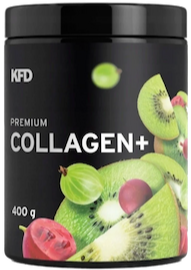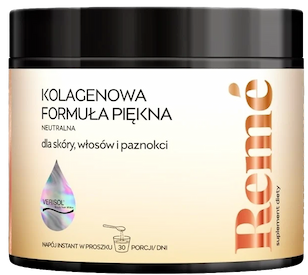The best collagen for bones and muscles (for healing, bone density, and general health)
Together with the pharmacist, we choose the best collagen supplement for bones.


Learn more about our editorial process
.

Learn more about our editorial process
.

Learn more about our editorial process
.

Learn more about our editorial process
.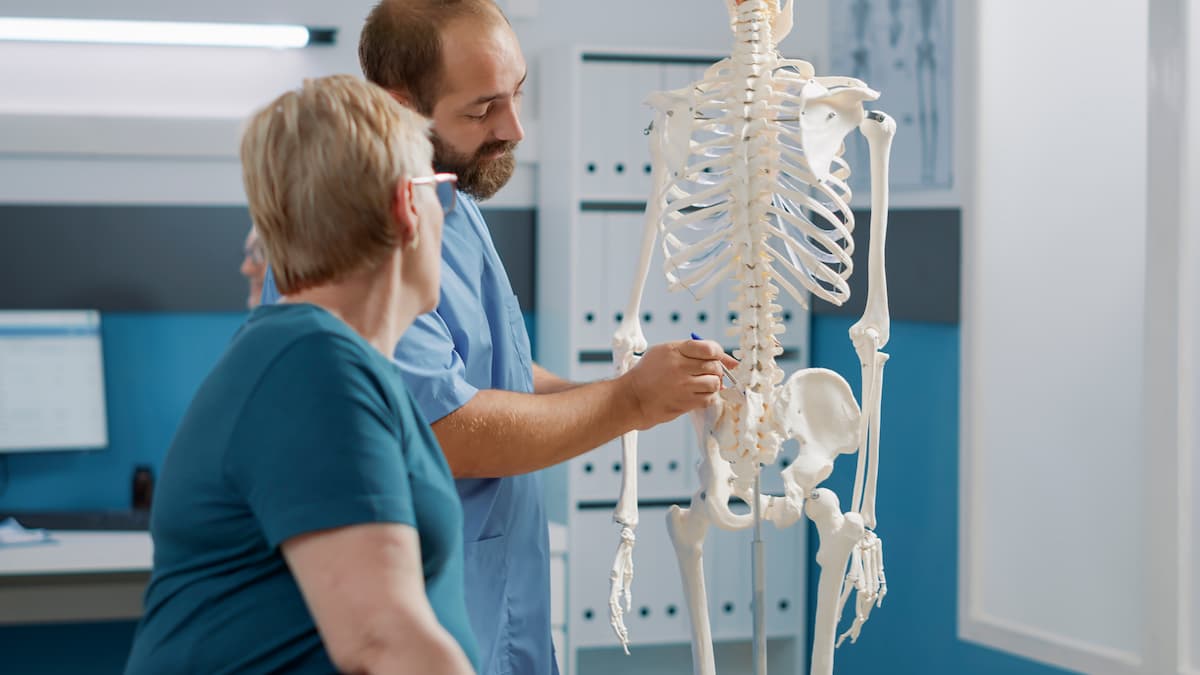
Why you can trust us
Articles on Natu.Care are written based on scientific research, data from government websites and other reliable sources. The texts are written in cooperation with doctors, nutritionists and other health and beauty experts. Articles are reviewed before publication and during significant updates.
.Learn more about our editorial process
.Information about advertisements
Content on Natu.Care may contain links to products from the sale of which we may receive a commission. When creating content, we adhere to high editorial standards and take care to be objective about the products discussed. The presence of affiliate links is not dictated by our partners, and we select the products we review ourselves completely independently.
.Learn more about our terms and Conditions
.When you think of bone support, calcium immediately comes to mind. But it's not the only ingredient that strengthens the skeleton. Collagen can also help with this.
Waiting for adhesion and recovery from injury is a long (and not very pleasant) road. That's why it's a good idea to take care of your skeletal system earlier.
Collagen is a key factor in the recovery process.
Crucial for your bones is diet and physical activity. Research shows that collagen can also play a significant role in this.
Collagen is also a key factor.
From this article you will learn:
- What collagen in the bones is responsible for.
- Which collagen supplements will be best for bone health.
- What are the effects of collagen supplements on bones.
- What are the effects of collagen supplements on bones?
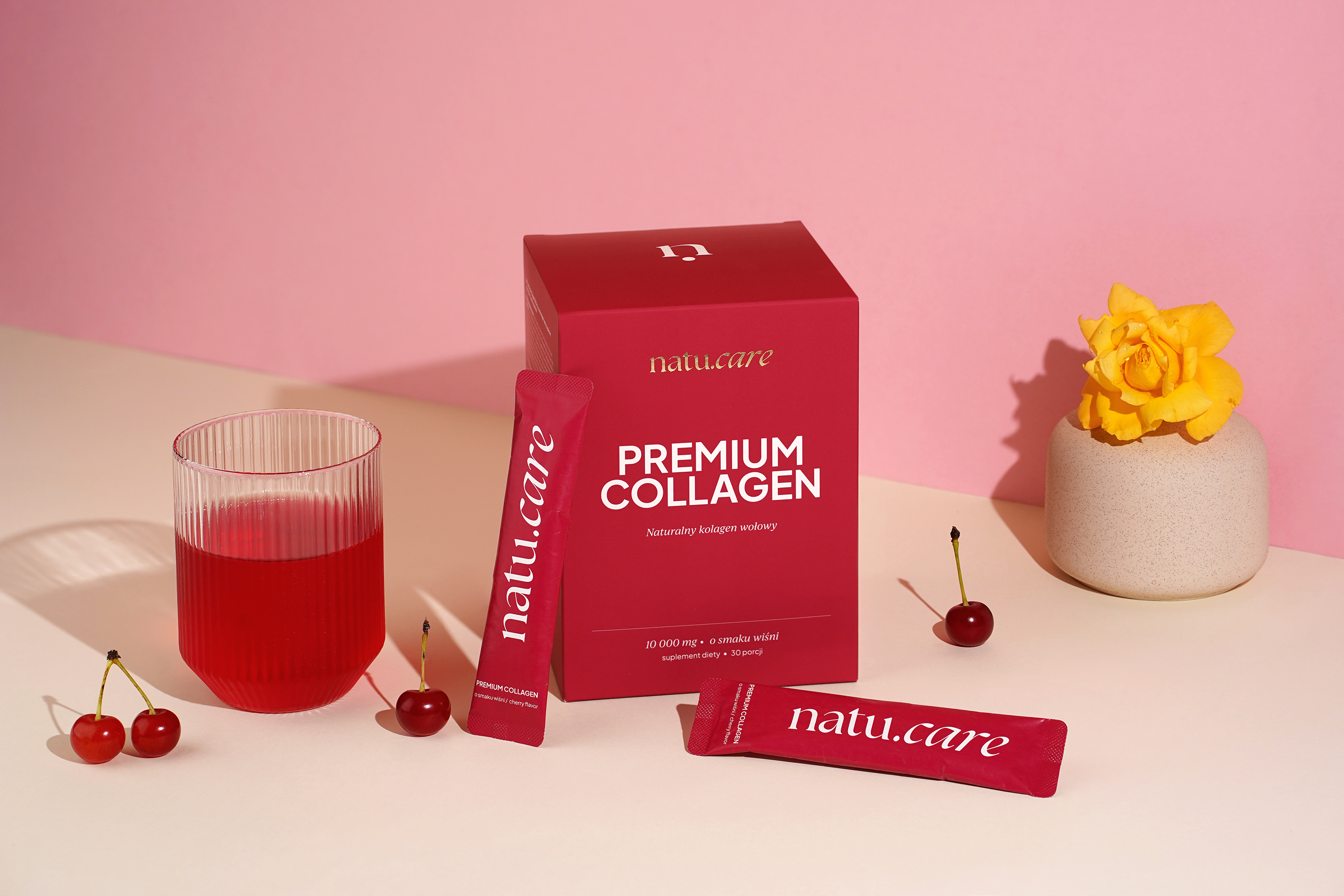
Sprawdź, jak może on zadbać o zdrowie Twoich stawów i urodę! Kolagen Premium (10 000 mg) wiśnia
Natu.Care Kolagen Premium Sport 10000 mg, wiśnia
Natu.Care Kolagen Premium dla zdrowia stawów, skóry, paznokci i włosów. Wołowy kolagen w optymalnej dawce 10 000 mg. Przebadany przez niezależne laboratorium.
Sprawdź cenę
Ten kolagen dobrze się rozpuszcza, super smakuje – jak taki soczek wiśniowy. Moje włosy przestały wypadać, są gęstsze i zdrowsze a cera promienna.@Dominika P.
See also:
- Collagen for athletes
- Collagen for tennis elbow
- Collagen for joints
- Collagen for tendons
- Collagen for skin
- Collagen for scars
- Collagen for wrinkles
- Collagen for acne
- Collagen for stretch marks
- Collagen for cellulite
- Hair collagen
- Facial collagen
How does collagen work for bones and joints?
Bones are made up of bone cells, collagen and calcium, phosphorus and magnesium compounds. The collagen fibres form a skeleton within them on which the minerals are deposited. Therefore, normal levels of collagen in the body affect bone strength, and a deficiency may contribute to an increased risk of fracturesand.
An abnormal collagen structure is the cause of the disease congenital bone fragility. It is a genetic defect.

Ilona Krzak Master of Pharmacy
It is worth knowing that the main type of collagen found in bone tissue is collagen type 1.
Collagen is one of the basic building blocks of articular cartilage, the tissue that protects the edges of bones from rubbing against each other. The cartilage and joint fluid provides adequate glide for movement, making it smooth and painlessand.
Deficiency of collagen in the body can lead to cartilage destruction and insufficient production of joint fluid. And this usually ends in joint pain and stiffness. This condition can also lead to osteoarthritisand.
In the case of cartilage, type II collagen plays a key role. Studies show that for autoimmune arthritis, non-denatured collagen is a better option. It 'desensitises' T-lymphocytes to cartilage tissue, so they do not attack it and inflammation is alleviated.

Ilona Krzak Master of Pharmacy
Because after the age of 25 our body stops producing collagen efficiently, it is worth considering collagen supplementation.
Best collagen for bones - ranking
Product selection criteria:
- Collagen type - if you want to look after your bones, it's best to choose collagen supplements type 1.
- Daily serving - for the product to have a chance of working, aim for a formula containing 2.5 to 15 grams of collagen hydrolysate.
- Source - the closest thing to the structure of human collagen is fish collagen, but there are studies that suggest that beef collagenand works better for bones. You can find both in our ranking.
- Form - for collagen to be easily digested and penetrate your body, it should be in the form of hydrolysate, or collagen peptides.
- Purity of formulation - additional active ingredients? Of course! Fillers, preservatives and colourings? Not likely.
- Bone-supporting active ingredients - we focused especially on products with added vitamins D, C, K and minerals: calcium, phosphorus and magnesium. Why? You will read about it under the ranking. Here you will see the full criteria.
Bone collagen for drinking
Natu.Care Collagen Premium 5000 mg, mango-maracuja

- Collagen content: 5000 mg marine collagen hydrolysate
- .
- Additional active ingredients: vitamin C, low molecular weight hyaluronic acid (and L-theanine and coenzyme Q10 in cocoa flavoured collagen or vitamin A and vitamin E in mango–passion fruit flavoured collagen)
- .
- Form: powder sachets
- .
- Dose: 1 sachet per day
- .
- Sufficient for: 30 days
- .
Product description
Fish collagen from the Natu.Care brand in a dose of 5000 mg. The formula contains a sufficient portion of the active substance to positively affect your joints, musculoskeletal system and immunity.
Take care of your tendons, joint cartilage, ligaments, muscles and even bones by supplying them with the building blocks to function properly. Move without bólu and provide the necessary support for any physical activity.
And as a „gratis” to regular supplementation, you will also receive firm skinóhand, healthy and shiny hair and strong nails.
Natu.Care Premium Collagen is available in two flavours – Cacao Bloom and Rise&Shine. Both formulas are based on the following active ingredients: marine collagen hydrolysate, wild roseóbud extract and hyaluronic acid.
Additionally, Cacao Bloom contains natural L-theanine, coenzyme Q10 and defatted Dutch cacao. Rise&Shine instead contains vitamin E and vitamin A.
These are the best collagens in the world.
These best fish collagens on the market also rós taste – Cacao Bloom is a treat for chocolate lovers. Rise&Shine will appeal to those whoóenjoy the refreshing taste of mangoófruit and passion fruit.
Pros and cons
Fish collagen from the Natu.Care brand in a dose of 5000 mg. The formula contains a sufficient portion of the active substance to positively affect your joints, musculoskeletal system and immunity.
Take care of your tendons, joint cartilage, ligaments, muscles and even bones by supplying them with the building blocks to function properly. Move without bólu and provide the necessary support for any physical activity.
And as a „gratis” to regular supplementation, you will also receive firm skinóhand, healthy and shiny hair and strong nails.
Natu.Care Premium Collagen is available in two flavours – Cacao Bloom and Rise&Shine. Both formulas are based on the following active ingredients: marine collagen hydrolysate, wild roseóbud extract and hyaluronic acid.
Additionally, Cacao Bloom contains natural L-theanine, coenzyme Q10 and defatted Dutch cacao. Rise&Shine instead contains vitamin E and vitamin A.
These are the best collagens in the world.
These best fish collagens on the market also rós taste – Cacao Bloom is a treat for chocolate lovers. Rise&Shine will appeal to those whoóenjoy the refreshing taste of mangoófruit and passion fruit.
Additional information
Fish collagen from the Natu.Care brand in a dose of 5000 mg. The formula contains a sufficient portion of the active substance to positively affect your joints, musculoskeletal system and immunity.
Take care of your tendons, joint cartilage, ligaments, muscles and even bones by supplying them with the building blocks to function properly. Move without bólu and provide the necessary support for any physical activity.
And as a „gratis” to regular supplementation, you will also receive firm skinóhand, healthy and shiny hair and strong nails.
Natu.Care Premium Collagen is available in two flavours – Cacao Bloom and Rise&Shine. Both formulas are based on the following active ingredients: marine collagen hydrolysate, wild roseóbud extract and hyaluronic acid.
Additionally, Cacao Bloom contains natural L-theanine, coenzyme Q10 and defatted Dutch cacao. Rise&Shine instead contains vitamin E and vitamin A.
These are the best collagens in the world.
These best fish collagens on the market also rós taste – Cacao Bloom is a treat for chocolate lovers. Rise&Shine will appeal to those whoóenjoy the refreshing taste of mangoófruit and passion fruit.
User review
Fish collagen from the Natu.Care brand in a dose of 5000 mg. The formula contains a sufficient portion of the active substance to positively affect your joints, musculoskeletal system and immunity.
Take care of your tendons, joint cartilage, ligaments, muscles and even bones by supplying them with the building blocks to function properly. Move without bólu and provide the necessary support for any physical activity.
And as a „gratis” to regular supplementation, you will also receive firm skinóhand, healthy and shiny hair and strong nails.
Natu.Care Premium Collagen is available in two flavours – Cacao Bloom and Rise&Shine. Both formulas are based on the following active ingredients: marine collagen hydrolysate, wild roseóbud extract and hyaluronic acid.
Additionally, Cacao Bloom contains natural L-theanine, coenzyme Q10 and defatted Dutch cacao. Rise&Shine instead contains vitamin E and vitamin A.
These are the best collagens in the world.
These best fish collagens on the market also rós taste – Cacao Bloom is a treat for chocolate lovers. Rise&Shine will appeal to those whoóenjoy the refreshing taste of mangoófruit and passion fruit.
Natu.Care Collagen Premium 10000 mg, cherry

- Collagen content: 10,000 mg of hydrolyzed bovine collagen
- Additional active ingredients: vitamin C, low molecular weight hyaluronic acid, glucosamine, chondroitin, extract of Indian frankincense resin (boswellia serrata)
- Form: powder sachets for drinking
- Serving: 1 sachet per day
- Lasts for: 30 days
Product description
One of the strongest collagens on the market, providing as much as 10,000 mg per daily serving. This product can effectively support the condition of joints, skin, hair, and nails.
With this supplement, you will support your skeletal and joint system as well as your beauty, helping you visually halt the aging process and feel rejuvenated!
Pros and cons
Pros:
- The daily portion of collagen is very large – as much as 10,000 mg.
- Proven collagen formula – COLLinstant, whose effectiveness has been confirmed in clinical studies.
- Effective dose of hyaluronic acid, which additionally moisturizes the skin and positively affects joint health.
- Vitamin C supports the body's natural collagen production.
- Glucosamine is a fundamental building block of compounds found in joint cartilage and a component of collagen that gives elasticity to connective tissue in tendons.
- Chondroitin is a natural component found in the human body, mainly in cartilage. This large molecule (mucopolysaccharide) has the ability to absorb water, which helps maintain the elasticity and resilience of cartilage.
- Frankincense resin extract supports blood circulation and joint mobility and reduces their stiffness. It may help alleviate inflammatory conditions.
- The composition has been tested by the independent and accredited J.S. Hamilton laboratory.
Cons:
- None.
Additional information
Users praise Natu.Care Collagen Premium for the easy dissolving of the powder.
ALLDEYNN Collarose Fish
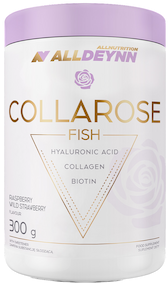
- Collagen content: 5000 mg hydrolysate fish collagen VERISOL F® .
- Additional active ingredients: vitamin C, hyaluronic acid, biotin
- Form: powder to dissolve in water .
- Dose: one scoop (6 g) of powder daily .
- Sufficient for: 50 days .
Product description
Atlantic cod collagen VERISOL F® contained in the formula are easily absorbed collagen peptides of fish origin. Regular supplementation can firm your skinóhand and slow down the ageing process. Your nails will become stronger and stop breaking. The addition of biotin will improve the condition of your hairów. The collagen portion is high enough to also have a good effect on your joints, muscles and bones.
Pros and cons
Atlantic cod collagen VERISOL F® contained in the formula are easily absorbed collagen peptides of fish origin. Regular supplementation can firm your skinóhand and slow down the ageing process. Your nails will become stronger and stop breaking. The addition of biotin will improve the condition of your hairów. The collagen portion is high enough to also have a good effect on your joints, muscles and bones.
Additional information
Atlantic cod collagen VERISOL F® contained in the formula are easily absorbed collagen peptides of fish origin. Regular supplementation can firm your skinóhand and slow down the ageing process. Your nails will become stronger and stop breaking. The addition of biotin will improve the condition of your hairów. The collagen portion is high enough to also have a good effect on your joints, muscles and bones.
Expert and user opinion
Atlantic cod collagen VERISOL F® contained in the formula are easily absorbed collagen peptides of fish origin. Regular supplementation can firm your skinóhand and slow down the ageing process. Your nails will become stronger and stop breaking. The addition of biotin will improve the condition of your hairów. The collagen portion is high enough to also have a good effect on your joints, muscles and bones.
DuoLife Collagen fish collagen 2500 mg
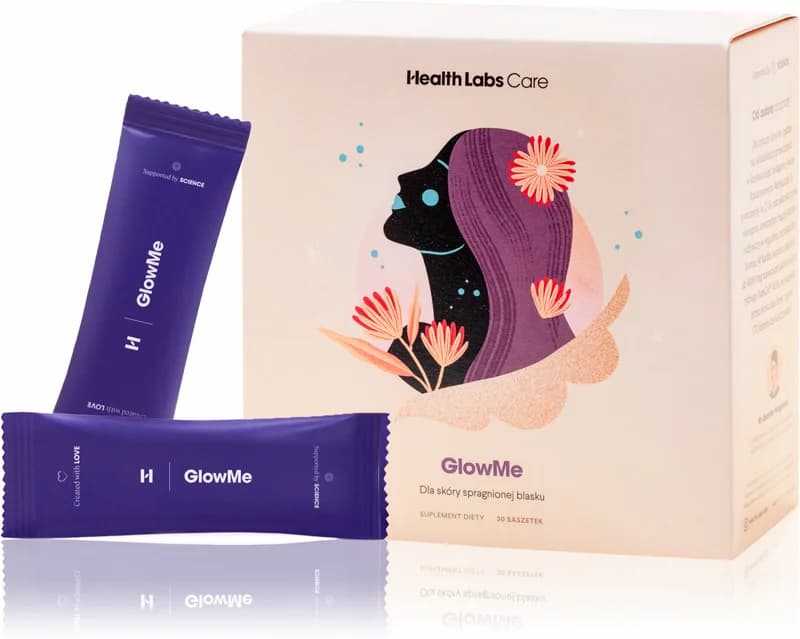
- Collagen content: 2500 mg collagen
- Additional active ingredients: vitamin C, silicon, glucosamine, hyaluronic acid, nettle and bamboo extracts
- Form: liquid to drink .
- Dose:25 ml .
- Sufficient for: 30 days .
Product description
100% natural collagen liquid without unnecessary ingredientsós. The composition of ingredientsós improves the appearance and condition of skinóry, hairów, nails. DuoLife is a good choiceór if you notice the first signs of skinóry ageing or want to stop this process. A tasty liquid, convenient to use.
Pros and cons
100% natural collagen liquid without unnecessary ingredientsós. The composition of ingredientsós improves the appearance and condition of skinóry, hairów, nails. DuoLife is a good choiceór if you notice the first signs of skinóry ageing or want to stop this process. A tasty liquid, convenient to use.
Additional information
100% natural collagen liquid without unnecessary ingredientsós. The composition of ingredientsós improves the appearance and condition of skinóry, hairów, nails. DuoLife is a good choiceór if you notice the first signs of skinóry ageing or want to stop this process. A tasty liquid, convenient to use.
User review
100% natural collagen liquid without unnecessary ingredientsós. The composition of ingredientsós improves the appearance and condition of skinóry, hairów, nails. DuoLife is a good choiceór if you notice the first signs of skinóry ageing or want to stop this process. A tasty liquid, convenient to use.
Pharmovit liquid collagen 10000 mg
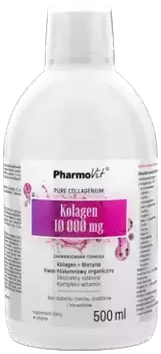
- Collagen content: 10000 mg hydrolysed bovine collagen types I and III .
- Additional active ingredients: hyaluronic acid, natural plant extracts, vitamin C, B vitamins, zinc, vitamin D
- Form: vials .
- Dose: 25 ml .
- Sufficient for: 20 days .
Product description
A solid daily dose of collagen for jointómuscle and bone health and beauty. The duo of collagen and vitamin C has a positive effect on each other, so that „the protein of youth” is better absorbed and more efficiently produced in the body.
Pros and cons
A solid daily dose of collagen for jointómuscle and bone health and beauty. The duo of collagen and vitamin C has a positive effect on each other, so that „the protein of youth” is better absorbed and more efficiently produced in the body.
Additional information
A solid daily dose of collagen for jointómuscle and bone health and beauty. The duo of collagen and vitamin C has a positive effect on each other, so that „the protein of youth” is better absorbed and more efficiently produced in the body.
KFD Premium Collagen+
Product description
High dose of collagen and a real bomb of vitamins C and D and organic sulphur. With this preparation the effects will come immediately. You will improve the firmness of your skin and reduce wrinkles. Your hair and nails will be strong and shiny.
A generous dose of collagen will improve the mobility of your jointsós, benefit your bone system and muscles. Do you do sports and need a product thatós able to keep up with your needs? This product will do the trick.
Pros and cons
High dose of collagen and a real bomb of vitamins C and D and organic sulphur. With this preparation the effects will come immediately. You will improve the firmness of your skin and reduce wrinkles. Your hair and nails will be strong and shiny.
A generous dose of collagen will improve the mobility of your jointsós, benefit your bone system and muscles. Do you do sports and need a product thatós able to keep up with your needs? This product will do the trick.
Additional information
High dose of collagen and a real bomb of vitamins C and D and organic sulphur. With this preparation the effects will come immediately. You will improve the firmness of your skin and reduce wrinkles. Your hair and nails will be strong and shiny.
A generous dose of collagen will improve the mobility of your jointsós, benefit your bone system and muscles. Do you do sports and need a product thatós able to keep up with your needs? This product will do the trick.
Expert opinion
High dose of collagen and a real bomb of vitamins C and D and organic sulphur. With this preparation the effects will come immediately. You will improve the firmness of your skin and reduce wrinkles. Your hair and nails will be strong and shiny.
A generous dose of collagen will improve the mobility of your jointsós, benefit your bone system and muscles. Do you do sports and need a product thatós able to keep up with your needs? This product will do the trick.
Product description
The dietary supplement from Remé contains beef collagen in a patented formula and vitamin C, whichóra aids its absorption. The formula comes in three flavours: neutral, orange-maracuja and strawberry-pomegranate. The formula can effectively support and improve the condition of the skinóry, hairóry and nails.
Pros and cons
The dietary supplement from Remé contains beef collagen in a patented formula and vitamin C, whichóra aids its absorption. The formula comes in three flavours: neutral, orange-maracuja and strawberry-pomegranate. The formula can effectively support and improve the condition of the skinóry, hairóry and nails.
Additional information
The dietary supplement from Remé contains beef collagen in a patented formula and vitamin C, whichóra aids its absorption. The formula comes in three flavours: neutral, orange-maracuja and strawberry-pomegranate. The formula can effectively support and improve the condition of the skinóry, hairóry and nails.
The dietary supplement from Remé contains beef collagen in a patented formula and vitamin C, whichóra aids its absorption. The formula comes in three flavours: neutral, orange-maracuja and strawberry-pomegranate. The formula can effectively support and improve the condition of the skinóry, hairóry and nails.
See also:
- Drinking collagen
- Collagen powder
- Collagen in sachets
- Liquid collagen
- Collagen in tablets
- Collagen in capsules
What should you find in a collagen bone supplement?
Vitamins and minerals play a key role in ensuring bone health in humans and can perfectly complement the effects of collagen. When reviewing the ingredients of collagen supplements, it is worth notingand:
- Vitamin D, which is essential for the absorption of calcium, an important component of bone.
- Vitamin K, which affects bone mineralisation.
- Vitamin C, which is essential for collagen production.
Minerals, such as calcium, phosphorus and magnesium, are also essential. Calcium is the main component of bones, while phosphorus is involved in their mineralisation. Magnesium is involved in the metabolic processes involved in the absorption and conversion of calcium into boneand.
Before you reach for a supplement, however, remember that your primary source of nutrients should be a healthy and balanced diet.
Effects of collagen supplementation on bones
Collagen is the skeleton on which calcium and the other minerals that make up bones are deposited. Its natural age-related loss can contribute to the weakening of our skeletal system.
As we age, the body's ability to maintain an adequate calcium balance also declines. This is particularly true in menopausal women. The combination of these two factors can lead to osteopenia and later even osteoporosis.
Menopause is associated with a decrease in estrogen. Less estrogen also means reduced collagen production.

Ilona Krzak Master of Pharmacy
Research suggestsand that long-term collagen supplementation may prevent bone demineralization and the development of these dangerous diseases.
Collagen for bone fracture
Collagen affects wound healing, but what about bone fracture? As one of the key building blocks of bone tissue, this protein has the potential to influence faster adhesion after fractures.
Preliminary research suggests that this may be the case -
A study conducted in 2021 on rats, showed a positive effect of collagen and arginine supplementation on bone healing after fracturesand.
Interesting facts
Another rodent study has shown that in the early stages of bone superstructure (fusion) after fracture, type collagen type III plays a key role.
Although collagen can have a positive effect on bone adhesion after fractures, the key to its supplementation remains the prevention of fractures through bone strengthening.
Collagen for bone strengthening
Collagen forms a network of fibres in bones that build their structure and strength. In addition, it is the site where calcium and other minerals are deposited, leading to mineralisation of the bones and increased hardness.
Collagen hydrolysates can attach calcium ions, improving calcium bioavailability, which is why collagen hydrolysate can be used in functional food ingredients to supplement mineral deficiencies.

Ilona Krzak Master of Pharmacy
Collagen is also essential for the proper functioning of bone cells, such as osteoblasts and osteocytes, which are responsible for bone structure and function.
Research suggests that collagen supplementation may strengthen bones, including in postmenopausal women, those at particular risk of osteopenia and osteoporosisand.
See also: Horse collagen for humans: a doctor's opinion
Did you know that
Patients with diabetes (especially those with poorly controlled disease) have a higher risk of fractures. Why is this the case? Collagen is a protein and can be glycated by reducing sugars. This affects the properties of bone collagen. Of course, the glycation process does not occur selectively and collagen proteins contained in the skin, hair, nails or tissues are also affected, explains Ilona Krzak, MSc in pharmacy.
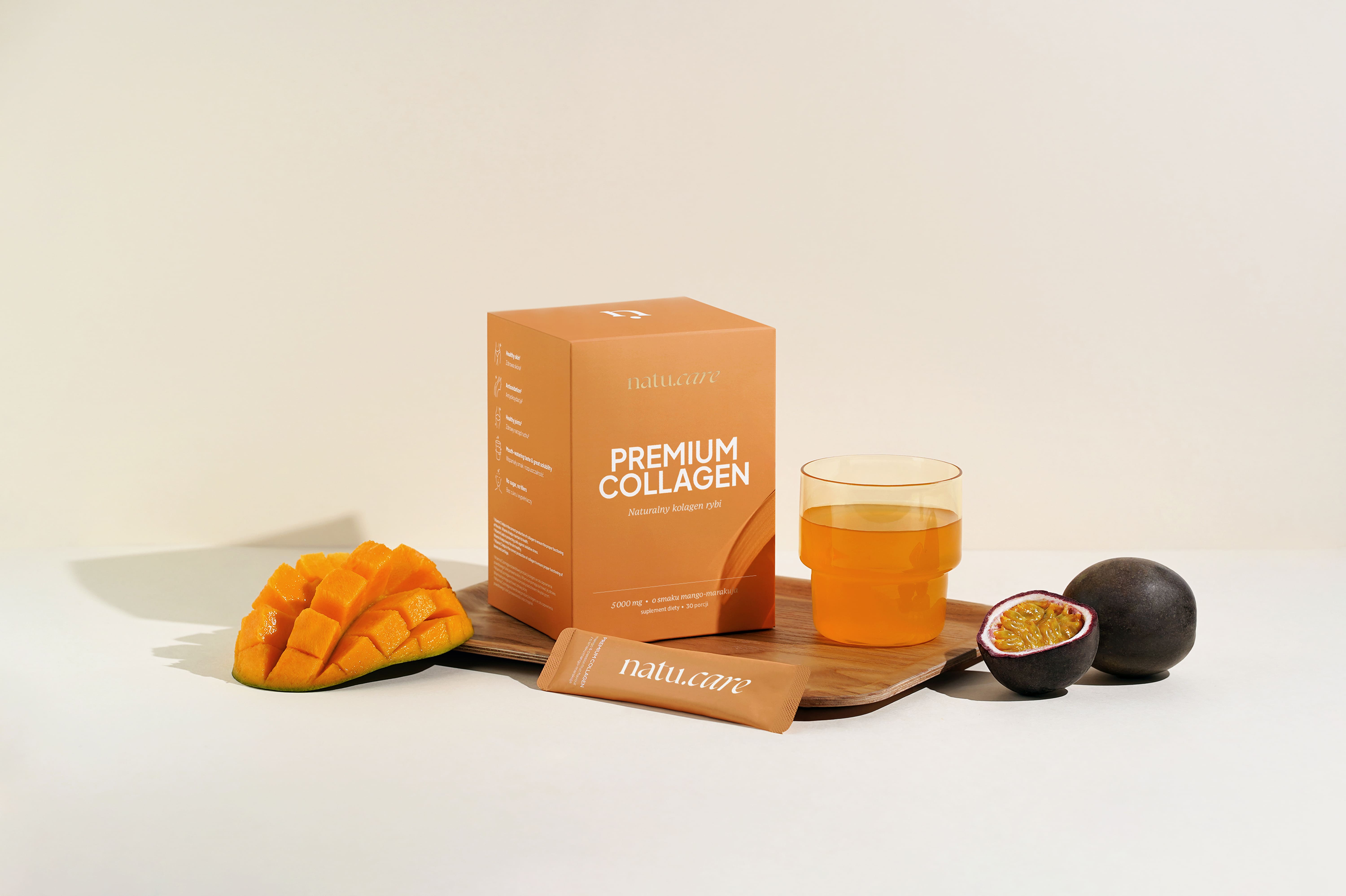
Sprawdź, za co pokochały go tysiące klientek Kolagen Premium 5000 mg, mango-marakuja
Natu.Care Kolagen Premium 5000 mg, mango-marakuja
Natu.Care Kolagen Premium dla zdrowia stawów, skóry, paznokci i włosów. Najlepsza przyswajalność. Optymalna dawka 5 000 lub 10 000 mg. Przebadany przez niezależne laboratorium.
Zobacz więcej
Wybrałam kolagen Natu.Care, ponieważ miał super opinie – a to było dla mnie bardzo ważne! Odkąd go stosuję, moja skóra znacznie się poprawiła i jest nawilżona, a na głowie pojawiły się nowe "baby hair".@Kasia S.
See also:
- Collagen type 1
- Collagen type 2
- Collagen type 3
- Most powerful collagen
- Collagen hydrolysate
- Collagen protein
- Marine collagen
- Collagen with vitamin C
- Collagen in drug form
- Collagen for women
- Grandmother's ways for joints
Summary
- Collagen forms a dense skeleton in the bones, on which minerals are deposited.
- The main type of collagen found in bones is type I.
- In the early stages of fracture healing, type III collagen may play a key role.
- Additional active ingredients to look for in collagen supplements for bones are: Vitamins C, D, K and calcium, phosphorus and magnesium.
- Collagen can help strengthen your bones, and some studies suggest that its supplementation may prevent osteopenia and osteoporosis.
FAQ
Is collagen good for bones?
Yes, collagen supplementation can positively affect bones. Collagen in bones forms a dense grid-like structure on which calcium, phosphorus and magnesium, which promotes their mineralisation. Collagen deficiency can therefore result in weakened bone tissue.
What's better: collagen to drink or in tablets?
The form of collagen administration does not matter significantly. Whether you opt for drinking collagen or in tablets may depend on your personal preference. To make it easier to stay regular, taking collagen should be a pleasure.
What you should pay attention to is the daily serving of collagen in the product. Collagen in liquid or powder usually have more collagen than those in tablets.
Does collagen have side effects?
Collagen supplements are generally considered safe, but there may be some side effects associated with consuming them. The most common of these are gastrointestinal complaints, such as a feeling of heaviness in the stomach.
Some people may be allergic to collagen, which can lead to allergic reactions such as rashes, itching or swelling.
How to replenish collagen quickly
To replenish collagen deficiencies, include in your diet foods such as broths cooked on marrow bones, offal, gelatine and jellies. However, collagen contained in food is not absorbed into the body very efficiently.
So dietary supplements come to the rescue to correct its deficiencies. The best ones contain collagen hydrolysate, which is easily absorbed by our body.
Can you drink gelatine instead of collagen?
Yes, you can drink gelatin instead of taking collagen supplements. Gelatin is a rich source of collagen, but bear in mind that it will be harder to absorb into the body than that contained in dietary supplements. This is because in the best collagens collagen fibres have been broken down into smaller and easily absorbed collagen peptides.
How long does collagen need to be taken for it to have an effect on bones?
It is widely believed that the first effects of collagen supplementation can be seen after just a few weeks. However, for its effects on bones, research suggests that long-term supplementation may be needed. Improvements in bone mineralisation may only occur after about a year of taking collagen.
Sources
See all
Bailey, A. J., Sims, T. J., Ebbesen, E. N., Mansell, J. P., Thomsen, J. S., & Mosekilde, Li. (1999). Age-Related Changes in the Biochemical Properties of Human Cancellous Bone Collagen: Relationship to Bone Strength. Calcified Tissue International, 65(3), 203-210. https://doi.org/10.1007/s002239900683
Bonjour, J.-P., Guéguen, L., Palacios, C., Shearer, M. J., & Weaver, C. M. (2009). Minerals and vitamins in bone health: The potential value of dietary enhancement. British Journal of Nutrition, 101(11), 1581-1596. https://doi.org/10.1017/S0007114509311721
Calcium, Nutrition, and Bone Health-OrthoInfo-AAOS. (n.d.). Retrieved June 21, 2023, from https://www.orthoinfo.org/en/staying-healthy/calcium-nutrition-and-bone-health/
Chin, K.-Y., & Ima-Nirwana, S. (n.d.). Vitamin C and Bone Health: Evidence from Cell, Animal and Human Studies. Current Drug Targets, 19(5), 439-450. http://www.eurekaselect.com/article/70185
Elam, M. L., Johnson, S. A., Hooshmand, S., Feresin, R. G., Payton, M. E., Gu, J., & Arjmandi, B. H. (2015). A calcium-collagen chelate dietary supplement attenuates bone loss in postmenopausal women with osteopenia: A randomised controlled trial. Journal of Medicinal Food, 18(3), 324-331. https://doi.org/10.1089/jmf.2014.0100
Elango, J., Robinson, J., Zhang, J., Bao, B., Ma, N., de Val, J. E. M. S., & Wu, W. (2019). Collagen Peptide Upregulates Osteoblastogenesis from Bone Marrow Mesenchymal Stem Cells through MAPK- Runx2. Cells, 8(5), Article 5. https://doi.org/10.3390/cells8050446
Figueres Juher, T., & Basés Pérez, E. (2015). [An overview of the beneficial effects of hydrolysed collagen intake on joint and bone health and on skin ageing]. Nutricion Hospitalaria, 32 Suppl 1, 62-66. https://doi.org/10.3305/nh.2015.32.sup1.9482
Karaytug, K., Arzu, U., Ergin, O. N., Bilgili, F., Unverengil, G., Bayram, S., Sen, C., Karaytug, K., Arzu, U., Ergin, O. N., Bilgili, F., Unverengil, G., Bayram, S., & Sen, C. (2021). Effects of Collagen- and Arginine-Fortified Osteokine Supplementation on Fracture Healing. Cureus, 13(10). https://doi.org/10.7759/cureus.19072
König, D., Oesser, S., Scharla, S., Zdzieblik, D., & Gollhofer, A. (2018). Specific Collagen Peptides Improve Bone Mineral Density and Bone Markers in Postmenopausal Women-A Randomized Controlled Study. Nutrients, 10(1), Article 1. https://doi.org/10.3390/nu10010097
Kumar, S., Sugihara, F., Suzuki, K., Inoue, N., & Venkateswarathirukumara, S. (2015). A double-blind, placebo-controlled, randomised, clinical study on the effectiveness of collagen peptide on osteoarthritis. Journal of the Science of Food and Agriculture, 95(4), 702-707. https://doi.org/10.1002/jsfa.6752
Lorincz, C., Manske, S. L., & Zernicke, R. (2009). Bone Health: Part 1, Nutrition. Sports Health, 1(3), 253-260. https://doi.org/10.1177/1941738109334213
Minerals for Bone Health-American Bone Health. (2016, September 28). https://americanbonehealth.org/nutrition/minerals-for-bone-health/
Porfírio, E., & Fanaro, G. B. (2016). Collagen supplementation as a complementary therapy for the prevention and treatment of osteoporosis and osteoarthritis: A systematic review. Revista Brasileira de Geriatria e Gerontologia, 19(1), 153-164. https://doi.org/10.1590/1809-9823.2016.14145
Price, C. T., Langford, J. R., & Liporace, F. A. (2012). Essential Nutrients for Bone Health and a Review of their Availability in the Average North American Diet. The Open Orthopaedics Journal, 6(1). https://doi.org/10.2174/1874325001206010143
Rodríguez-Olleros Rodríguez, C., & Díaz Curiel, M. (2019). Vitamin K and Bone Health: A Review on the Effects of Vitamin K Deficiency and Supplementation and the Effect of Non-Vitamin K Antagonist Oral Anticoagulants on Different Bone Parameters. Journal of Osteoporosis, 2019, e2069176. https://doi.org/10.1155/2019/2069176
Seelemann, C. A., & Willett, T. L. (2022). Empirical evidence that bone collagen molecules denature as a result of bone fracture. Journal of the Mechanical Behavior of Biomedical Materials, 131, 105220. https://doi.org/10.1016/j.jmbbm.2022.105220
Tzaphlidou, M. (2008). Bone Architecture: Collagen Structure and Calcium/Phosphorus Maps. Journal of Biological Physics, 34(1-2), 39-49. https://doi.org/10.1007/s10867-008-9115-y
Vitamins for Bone Health-American Bone Health. (2016, September 28). https://americanbonehealth.org/nutrition/vitamins-for-bone-health/
Jelonek, L. (2023). Collagen. Everything you need to know (B. Turczynski, ed.; 1st ed.). Natu.Care. https://books.google.com/books?vid=9788396887801
Editorials
Meet the team

Ilona Krzak obtained her Master of Pharmacy degree from the Medical University of Wrocław. She did her internship in a hospital pharmacy and in the pharmaceutical industry. She is currently working in the profession and also runs an educational profile on Instagram: @pani_z_apteki

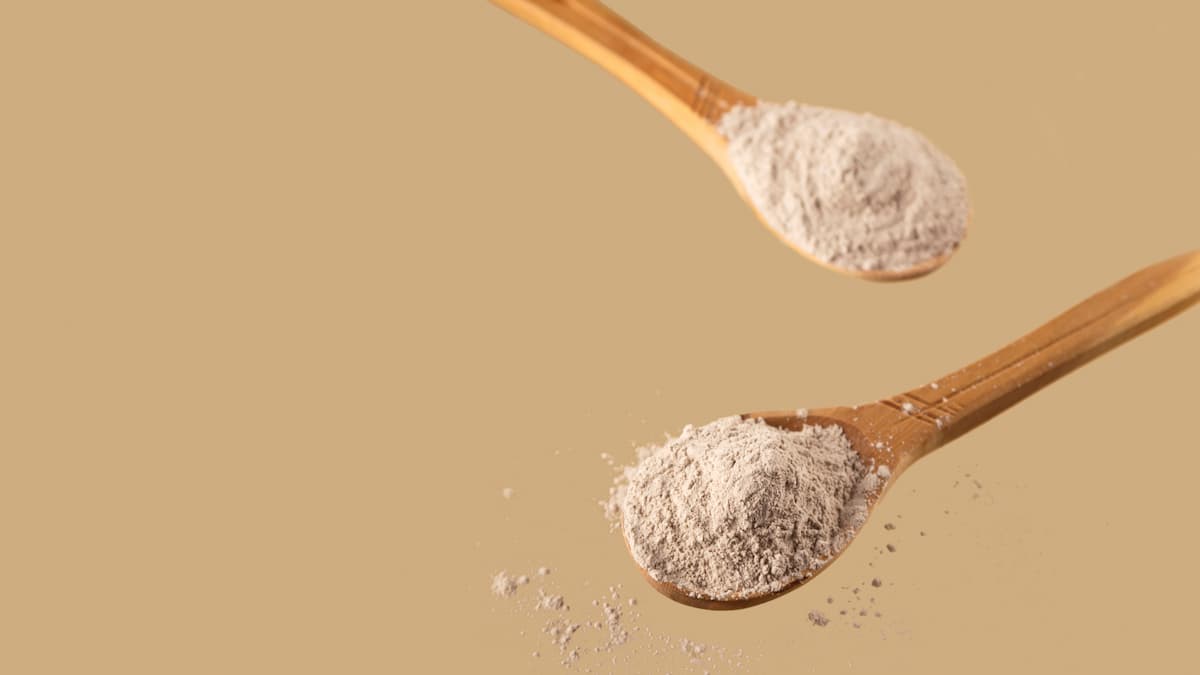
Everything you want to know about COLLinstant collagen.

Collibre collagen is an interesting supplement in shot form.
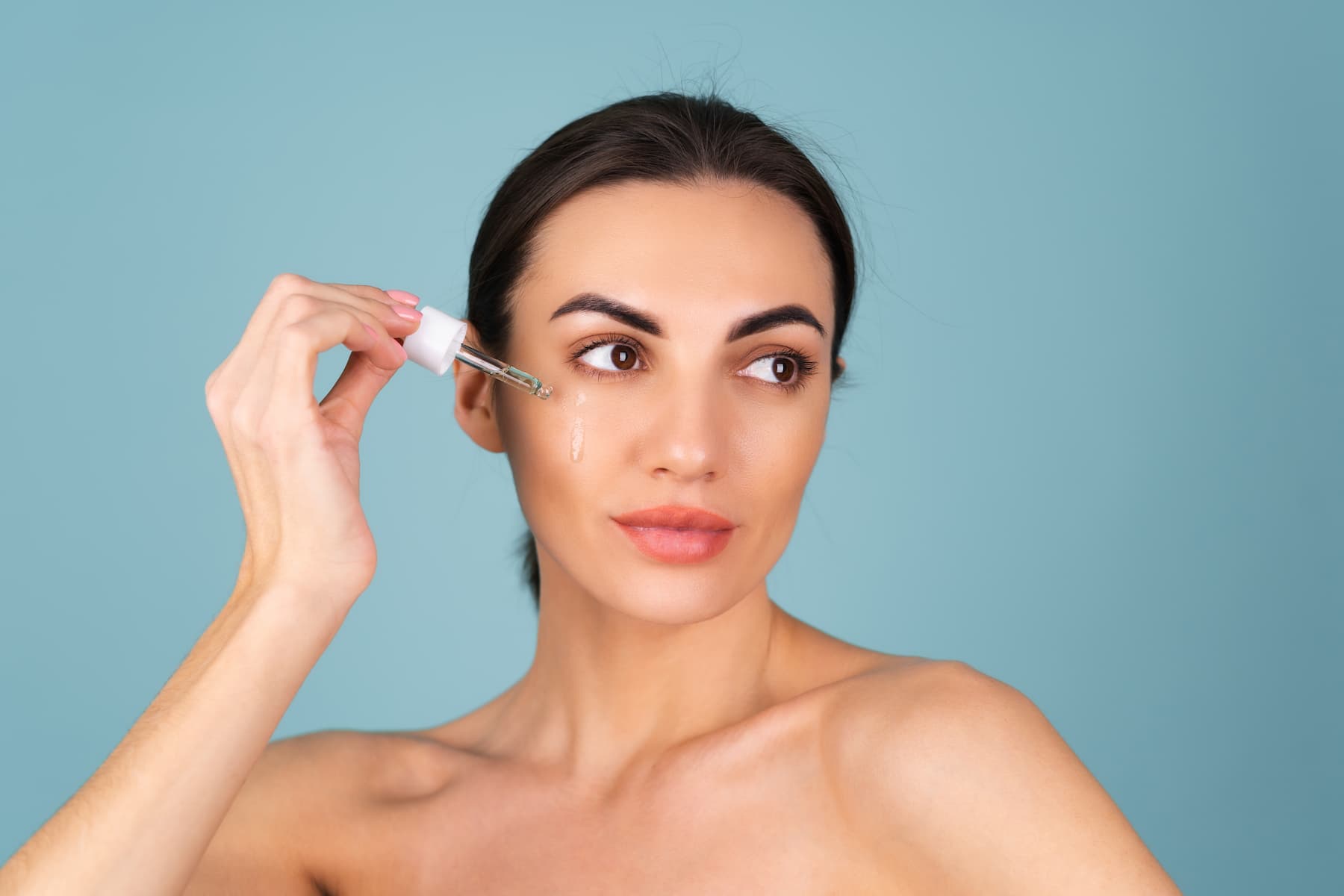
Solgar collagen with hyaluronic acid is a dietary supplement that supports skin and joint health.
